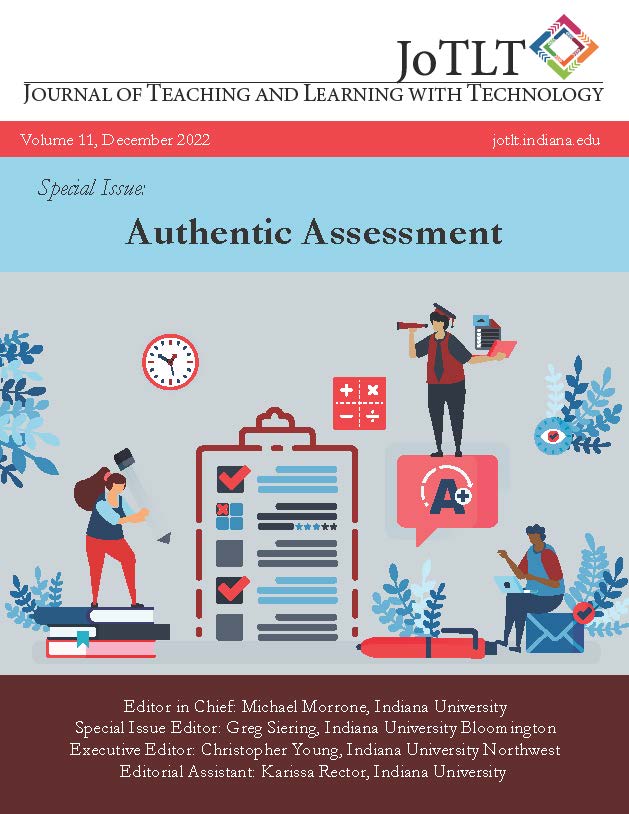Introduction: Special Issue on Authentic Assessment
Main Article Content
Abstract
Like many of our instructional endeavors over the past few years, the topic of this special issue arises in part out the COVID-19 pandemic. As we shifted our instruction in the fall of 2020 to various forms of remote learning—synchronous, asynchronous, hybrid, and HyFlex—there was significant concern about academic integrity for exams now being taken online. While many institutions tried to rapidly adopt and scale the use of online proctoring tools, there was a deeper movement to shift us away from the large-scale, objective testing that has been ubiquitous in our on-campus courses. Instead of patching up an imperfect system, why not introduce a new assessment paradigm that both addressed the immediate integrity concerns and encouraged more enriching approaches to learning and assessment? While we all explored different types of alternative assessments—more writing and application questions, smaller low-stakes assessments, and take-home and collaborative exams—the gold standard was authentic assessment.
Downloads
Article Details
- Authors retain copyright and grant the Journal of Teaching and Learning with Technology (JoTLT) right of first publication with the work simultaneously licensed under a Creative Commons Attribution License, (CC-BY) 4.0 International, allowing others to share the work with proper acknowledgement and citation of the work's authorship and initial publication in JoTLT.
- Authors are able to enter separate, additional contractual agreements for the non-exclusive distribution of the journal's published version of the work (e.g., post it to an institutional repository or publish it in a book), with an acknowledgement of its initial publication in JoTLT.
- In pursuit of manuscripts of the highest quality, multiple opportunities for mentoring, and greater reach and citation of JoTLT publications, JoTLT encourages authors to share their drafts to seek feedback from relevant communities unless the manuscript is already under review or in the publication queue after being accepted. In other words, to be eligible for publication in JoTLT, manuscripts should not be shared publicly (e.g., online), while under review (after being initially submitted, or after being revised and resubmitted for reconsideration), or upon notice of acceptance and before publication. Once published, authors are strongly encouraged to share the published version widely, with an acknowledgement of its initial publication in JoTLT.
